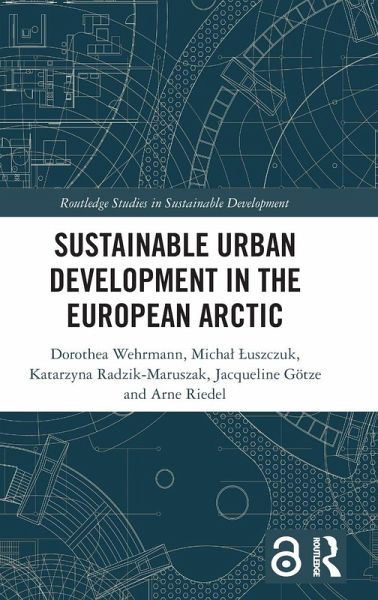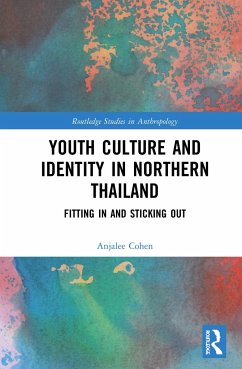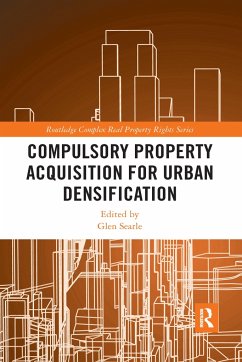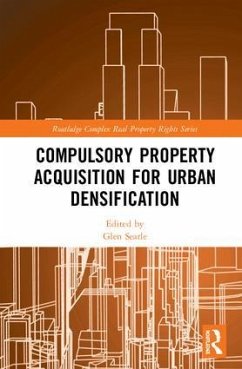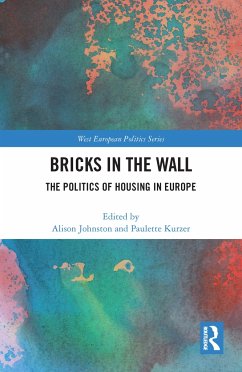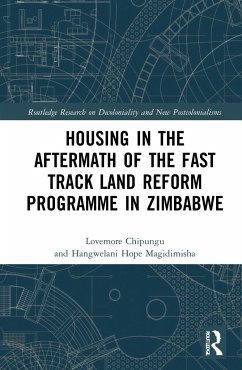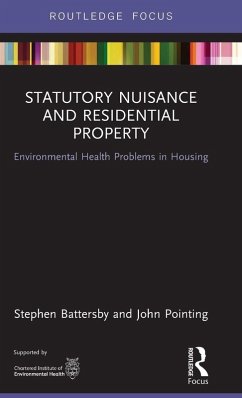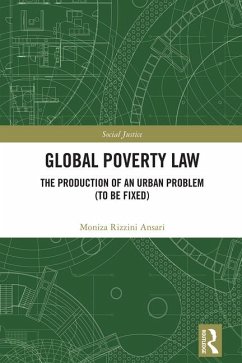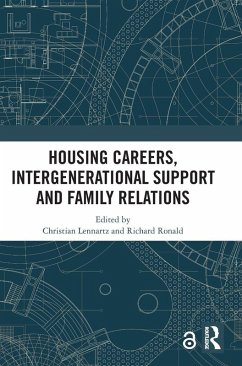Sustainable Urban Development in the European Arctic
Versandkostenfrei!
Versandfertig in 1-2 Wochen
Weitere Ausgaben:

PAYBACK Punkte
90 °P sammeln!




Focusing on cities in the European Arctic, this book consolidates research on sustainable development, local and urban governance, and transnational cooperation. It will be relevant to researchers, social scientists, policymakers, practitioners and NGOs in the fields of global governance, sustainable development, and environmental studies.
Dorothea Wehrmann is a senior researcher at the German Institute of Development and Sustainability and has a background in sociology and political science. She obtained her PhD in 2017 from Bielefeld University with a thesis entitled "Polar Entanglements? (Critical) Geopolitics of the Changing Polar Regions in Inter-American Perspective" (Routledge, 2019). One of the key findings of her PhD research was that local perceptions have been little considered in dominant discourses on the Arctic and Antarctic and related territorial disputes, which inspired her to develop the SUDEA research proposal together with Arne Riedel and Michä ¿uszczuk in 2018. Since the project's kick-off in November 2020, Dorothea has been principal investigator and co-lead of the SUDEA team together with Michä ¿uszczuk. Constant throughout her career has been an interest in societal responses to global challenges. Her research interests and respective publications relate to cooperative frameworks in policy-making processes, legitimacy studies, and (critical) geopolitics. Michä ¿uszczuk is an Associate Professor at the Institute of Socio-Economic Geography and Spatial Management, Maria Curie-Sk¿odowska University. He holds a doctor habilitatus degree in political science and has been a co-leader of the SUDEA project. He is a member of the Committee on Polar Research, the Polish Academy of Sciences, serves as a delegate of Poland to the IASC Council, and was elected as a member of the IASSA Council (2017-2021). He has been a Fulbright fellow 2015-2016. His research interests include the geopolitics of polar regions, socio-economic adaptation to climate change in the Arctic, Polish polar policy, and history of Polish polar research. Katarzyna Radzik-Maruszak has a background in political science and law and is currently an Associate Professor at the Institute of Political Science and Administration at Maria Curie-Sk¿odowska University. She holds a doctor habilitatus degree in political science. She is a member of the Working Group on Participation and Civic Dialogue, operating under the Polish Minister for Civil Society. Katarzyna has experience in comparative qualitative research in European local governments. She was a visiting scholar at Tampere University in Finland from 2014 to 2015 and a research fellow at Charles University in Prague, Czech Republic, in 2021. She has been the head of several scientific projects. Her research interests include comparative public administration, local governance, and citizen participation. Jacqueline Götze is a political scientist with a background in international relations. She works as a researcher at the German Institute of Development and Sustainability (IDOS). Jacqueline wrote her PhD thesis at the University of Bonn on the relations between Sámi organisations and the European Union (EU) while understanding these relations as an example of Indigenous peoples' participation in transnational policy-making. In her PhD thesis, she found that the participation of the Sámi as the only Indigenous peoples within the EU is only limitedly formalised, which influences the Sámi right to self-determination. Jacqueline's research interest focuses on the participation of marginalised groups, Indigenous peoples' rights, transnational cooperation, and green colonialism. Arne Riedel is a lawyer and senior fellow at the Ecologic Institute, where he coordinates the Ecologic Legal team as well as the Institute's activities on Arctic issues. Within this topic, he focuses on Arctic environmental governance and has worked since 2012 on numerous Arctic policy projects for German ministries and agencies, as well as for the EU Commission and the WWF International Arctic Programme. Arne has been an ethics advisor to two Horizon 2020 projects and was also a member of the scientific advisory panel to the German MARE:N research programme "Coastal, Marine and Polar Research for Sustainability" in 2021. In his work on climate governance, since 2016, he has been a part of the German and EU delegations to the negotiations under UNFCCC, Kyoto Protocol, and Paris Agreement and, since 2020, a member of the Kyoto Protocol's Compliance Committee enforcement branch.
Produktdetails
- Verlag: Routledge
- Seitenzahl: 260
- Erscheinungstermin: 7. Februar 2025
- Englisch
- Abmessung: 240mm x 161mm x 19mm
- Gewicht: 558g
- ISBN-13: 9781032254593
- ISBN-10: 1032254599
- Artikelnr.: 71847910
Herstellerkennzeichnung
Libri GmbH
Europaallee 1
36244 Bad Hersfeld
gpsr@libri.de
Für dieses Produkt wurde noch keine Bewertung abgegeben. Wir würden uns sehr freuen, wenn du die erste Bewertung schreibst!
Eine Bewertung schreiben
Eine Bewertung schreiben
Andere Kunden interessierten sich für




